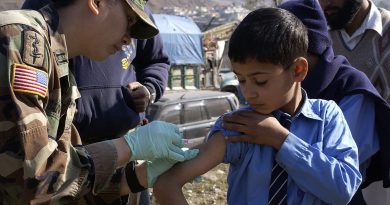Focus on Religious Persecution: Morocco
By Nicholas Elden
Staff Writer
In Morocco, matters of human rights violations are under scrutiny due to the new burka ban placed on Muslim women living inside the country. The decision to ban the burka came recently and has been met with great controversy from the Northern Observatory of Human Rights and further human rights organizations.
The reasoning behind banning the burka breaks down into a matter of perceived safety. The burka was banned because it was thought to drastically reduce the amount of radical Islam throughout Africa and the globe. With a burka on, security forces have a harder time identifying danger and risk factors, while the lack of them also encourages a more moderate approach to Islam. A high-ranking member of the Ministry of the Interior of Morocco released the news of the ban in a public statement where it said, “Traders have confided that this decision is motivated by security reasons, some criminals having repeatedly used this garment to perpetrate their crimes.” This comment has been scrutinized to the highest extent and has been deemed publically inappropriate and illegal.
With living in a very sophisticated time where every country is connected at the click of a screen, the power of global human rights activists is at an all time high. The burka and complete religious freedom is detailed in the articles of the Human Rights Watch and the United States Commission of International Religious Freedom. The burka is an essential piece of religious garb worn by women who follow a more conservative path of Islam. The burka is meant to prevent acts of sin committed by men unto the wearer of said burka. To those who practice Islam more conservatively, it is sinful (haram) to look at someone in a sexual manner, therefore, women who decide to wear a burka prevent such acts of sin from occurring. Knowing this, it seems erroneous and down-right egregious to ban such religious garb with the reason being “security.” It begins with burkas and then soon yarmulkes will also be banned as well as hijabs; it can be very well perceived as a human rights violation to restrict someone’s religious freedom solely for “security reasons.”
The importance of security and terror elimination is at an all-time high, especially with the always growing amount of refugees around the world. In areas like Berlin, Germany patrons at train stations are subject to searches if seen wearing baggy clothing, especially for women wearing full body garbs. Morocco is actually particularly progressive in regards towards religious freedom and refugee acceptance. In 2016 alone, the parliament of the state adopted a new Press and Publications code that advanced the 2002 press code which eliminated prison time as punishment. The new code still punishes many nonviolent speech offenses with fines and court-ordered suspensions of websites and publications.
Kenneth Roth, the executive director of Human Rights Watch states, “Authorities frequently impeded events organized by local chapters of the Moroccan Association for Human Rights, by denying access to planned venues. They also prevented the efforts by many chapters of the association to file documents as required by the law, placing them in legal jeopardy.”
With more bans placed on research missions by both Amnesty International and Human Rights Watch, it’s more important than ever to for the global community to keep watch of the religious restrictions and human right implications going through the nation. The Islam people have endured decades of religious racism and scrutiny and it’s most essential now in 2017 to turn the international perspective from one of racism and fear to one of acceptance and global progression.

